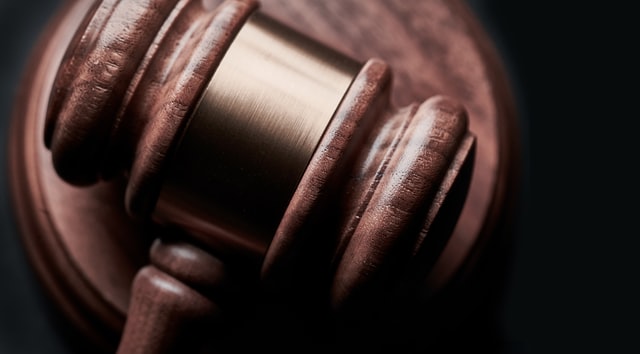
Where There’s a Will, There’s a Plan
This article has been reviewed by a practicing attorney in 2020
This content is not intended to be a substitute for professional legal advice. Always seek the advice of an attorney or another qualified legal professional with any questions you may have regarding your situation.
There are many types of estate planning documents you can employ to pass down your assets after your death. One of the most commonly used instruments is a will. This article will explain the benefits of a will, how to create a one, how to change a will, and other helpful information to guide you in your estate planning process.
What is a Will?
A will is a legal document, which explains how certain assets from an individual’s estate are distributed on their death. Each will identifies a “testator,” the person creating the will, “beneficiaries,” individuals to whom the testator’s assets are bequeathed, and an “executor,” the person who administers the will. Essentially, a will can provide a specific plan for what happens to your assets after your death. A will may also appoint guardians for minor children.
Why Create a Will?
To understand the benefits of a will, you must first understand the process that occurs when you die without any legal document distributing your estate upon your death. “Intestate” is a legal term used to describe a person who dies without a will (or a trust). When you die intestate, the laws of the state in which you die govern how your estate is distributed. Each state has its own unique set of rules governing this area of law.
Generally, when a person dies intestate, a probate court opens a case to distribute the deceased’s estate. “Probate” is the legal process for settling an estate, whether a person dies intestate or with a will. As an initial matter, the probate court will usually appoint an administrator to oversee the deceased’s estate. Many courts will appoint a close family member as an administrator. The administrator is named in the suit and manages the estate in accordance with probate court orders and the local law. Because the administrator is named in the suit, they receive all legal claims to the estate, including claims from creditors for outstanding debts. Usually, the administrator will pay off any remaining debts from assets in the deceased’s estate and then distribute any remaining assets to the heirs of the estate in accordance with court order.
Who qualifies as an heir of an intestate estate also depends on state law. Legal heirs of the deceased typically include surviving spouses, children, and parents. If the deceased dies without any of these close legal heirs, the deceased’s property may be passed down to nieces and nephews, aunts and uncles, and so on down the line. The order in which heirs inherit is called “intestate succession,” and is specific to state law. If the deceased dies with no legal heirs, their property “escheats” to the state, meaning the state takes ownership of the assets.
As you have probably surmised from the brief explanation above, if you die intestate, you have no power over how your property is distributed upon your death. The probate court would decide how to distribute your assets, and to whom, based on your state’s law. This process can be lengthy and costly, and costs associated with probating an estate are generally taken from the estate’s assets. It is for this reason that many people choose to create a will; they want the power to decide what happens to their estate after their death.
Creating a Will
As with most issues in estate planning, the requirements for creating a will vary according to each state. The following is a general summary concerning will formation.
Legal Requirements
When creating a will, there are a few legal requirements of which you must be aware. Generally, as the testator, you must:
- Have the “capacity” and be “of sound mind” to create a will. These are legal terms meaning that you understand what property you possess, and you know what it means to leave it to someone after your death. This is an important requirement as one of the most common ways to challenge a will is by alleging that the testator did not have the requisite mental capacity to create the will.
- Create and sign a written document that names beneficiaries for at least some of your property.
- Have the document signed by two witnesses (it is best for you to find “disinterested” witnesses, i.e., individuals who are not beneficiaries of the will and have no interest in your estate).
Contents
After you meet these legal requirements, you will likely want your will to contain the following:
- Designation of an executor who will carry out the will provisions (the equivalent of an administrator if you died intestate);
- Designation of beneficiaries, the individuals you want to inherit your assets;
- Instructions for when and how the assets will be distributed to your beneficiaries; and
- Guardians listed for any minor children.
As with any estate planning document, you will want to be as specific as possible when explaining which assets you want to leave to which beneficiary (or set of beneficiaries). Of note, some assets may not proceed through probate, and likely would not need to be included in your will. These include assets, which already provide for a beneficiary on your death, such as: bank accounts; retirement funds; life insurance policies; and assets in a trust. However, if you have questions concerning which assets to include in your will, you should always consult an estate planning attorney.
Changing a Will
As life goes on, circumstances may arise, which lead you to want to change your will. State law governs whether the changes you make will be honored in probate court after your death. For example, some states may honor handwritten changes to a will while other states find such changes invalid. Further, handwritten changes are an easy way for individuals to contest the validity of the will and/or the changes. Therefore, it is vitally important that you speak with a competent estate planning attorney in your area before attempting to change your will. To avoid a potentially costly legal battle over your estate and to ensure your final wishes are honored, you should modify your will through a codicil. A “codicil” is another legal document, with similar, if not the same, elements required for creating a will. Your codicil would explain your desired changes to your will. As the testator, you would likely execute the codicil in the same way you executed the original will.
Properly Storing a Will
When your will is probated (more on this below), the court will use your original will in the process. For this reason, it is important that you keep the original document in a safe and secure location. If you had an attorney draft your will, the attorney will likely keep it in his or her office. If not, or if you would prefer to keep the will with you, you should store it in a fire and waterproof filing cabinet or safe in your house. Regardless of where you store your will, you should always relay this information to an individual you trust. Similarly, if your will is locked in a safe or filing cabinet, you should give the code or an extra key to someone you trust, such as your executor.
Probating a Will
As discussed earlier, “probate” is the legal process of distributing a person’s estate on their death. Even if you die with a will, your estate still passes through probate, as it would have had you died intestate, with one significant difference: your estate will be probated in accordance with your will, not based upon your state’s laws. For example, if you died intestate with three children surviving you, your estate would likely pass equally to your three children as your heirs. However, if you desire to leave your daughter a larger portion of your assets and to prevent one of your son’s from receiving any portion of your estate, you can provide for this in your will. The probate court would then distribute the larger portion of your assets to your daughter and omit one of your sons from receiving any of your assets, in accordance with your will. In short, when you have a will, the probate court has a duty to ensure that your will, and your final wishes, are satisfied to the fullest extent of the law.
It is also important to understand that will contests generally occur while the will is being probated. As alluded to before, there are a few instances where individuals may contest a will. However, not everyone may challenge a will. A person must have “standing” and be an “interested person” to contest a will. These persons generally fall into one of three categories: (1) beneficiaries of a prior will; (2) beneficiaries of a subsequent will; and (3) intestate heirs. In most cases, the person contesting the will must prove coercion, diminished mental capacity, or fraud.
Speaking with an Estate Planning Attorney
For the best advice on creating (or amending) your will, it is important that you speak with an estate planning attorney local to your area. In preparation for your meeting, you should bring a list of all your assets and debts, as well as a list of potential beneficiaries and executors for your estate. An attorney in your area can help you create a will that provides the estate plan you desire after your death.
Related Articles

Burial Insurance: Everything You Need to Know
If you have an elderly loved one, you may be considering burial insurance. This is a type of life insurance that specifically covers final expenses. A 2020 report on life insurance policyholders found that 84% of those that buy life insurance, do so to cover end-of-life expenses. Considering that the majority of people who have […]

Where There’s a Will, There’s a Plan
This article has been reviewed by a practicing attorney in 2020 This content is not intended to be a substitute for professional legal advice. Always seek the advice of an attorney or another qualified legal professional with any questions you may have regarding your situation. There are many types of estate planning documents you can […]

Elder Law Attorneys: A Comprehensive Guide
If you are someone who is taking care of a senior or has an elderly loved one, you should consider working with an elder law attorney. Though you may not expect it, individuals begin to face new and more complex legal concerns as they get older. Actions that may have seemed trivial when they were […]

Trusts: What is One and How do They Work?
Estate planning is an integral part of planning for seniors. There are many different forms of estate planning and various tools available to use. One estate planning tool that can be helpful for many seniors is a trust. They can serve many different purposes and are a great estate planning tool, regardless of your estate’s […]

Understanding Trust Beneficiaries
This article has been reviewed by a practicing attorney in 2020 This content is not intended to be a substitute for professional legal advice. Always seek the advice of an attorney or another qualified legal professional with any questions you may have regarding your situation. Trusts are common estate planning instruments used to manage and […]

Transfer on Death Deeds: A Complete Overview
Deciding how you want your assets and estate distributed on your death can be an emotional task. Analyzing the legal mechanisms to accomplish this task can be overwhelming and exhausting. You want to be sure your assets will be distributed in accordance with your final wishes, but you also do not want to burden your […]